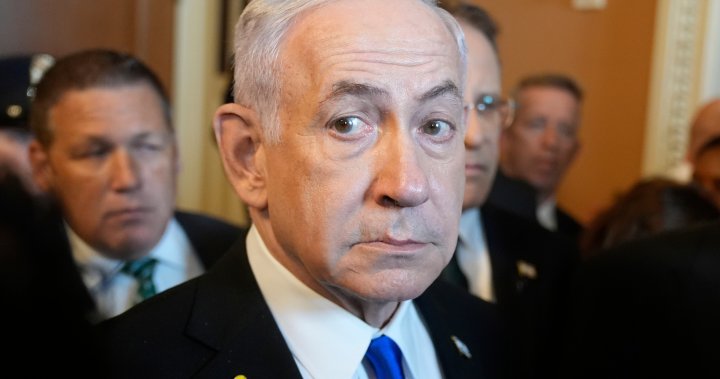The fragile political foundation supporting Israeli Prime Minister Benjamin Netanyahu appears to be crumbling as his governing coalition faces unprecedented pressure amid the ongoing Gaza conflict. After more than a year of warfare, internal divisions have reached a breaking point, threatening to topple a government already navigating treacherous political waters.
On Tuesday, Israeli Defence Minister Yoav Gallant delivered what many analysts view as a fatal blow to coalition stability by publicly declaring the government must establish clear objectives for the Gaza conflict. His unprecedented challenge to Netanyahu’s leadership comes after months of simmering tensions over war strategy and post-conflict governance plans.
“Israel cannot continue without a defined endgame,” Gallant stated during a televised address. “Our soldiers deserve clarity on their mission, and our citizens deserve security that extends beyond military operations.“
The coalition, already walking a tightrope between far-right members demanding expanded military operations and centrists advocating diplomatic solutions, now faces its most significant test. Political analyst Shira Cohen from Tel Aviv University notes that “Netanyahu has masterfully balanced competing interests throughout his career, but the prolonged Gaza conflict has exposed fundamental incompatibilities within his government.”
Meanwhile, Canada’s diplomatic efforts to facilitate humanitarian aid to Gaza continue despite the political turmoil in Israel. Foreign Affairs Minister Mélanie Joly emphasized the importance of maintaining diplomatic channels despite Israel’s internal challenges.
Economic implications of the coalition’s potential collapse have already manifested in Israeli markets, with the Tel Aviv Stock Exchange recording a 3.2% drop on Wednesday. Financial analysts predict continued volatility as political uncertainty compounds existing economic pressures from the prolonged conflict.
Opposition leader Yair Lapid has seized the opportunity, calling for immediate elections. “Netanyahu’s government has failed Israel on every front,” Lapid declared. “The people deserve a chance to elect leadership capable of ending this conflict and rebuilding our national security.”
The crisis extends beyond domestic politics, with international partners growing increasingly frustrated with the Netanyahu government’s approach. U.S. Secretary of State Antony Blinken’s recent statements reflect mounting American concern over both humanitarian conditions in Gaza and Israel’s apparent lack of post-conflict planning.
Public opinion within Israel reflects this political fracturing. Recent polling shows Netanyahu’s approval rating at 31%, the lowest since the conflict began. More tellingly, 57% of Israelis now support new elections, according to the Israel Democracy Institute’s monthly survey.
For Palestinians in Gaza, the political machinations in Israel offer little immediate relief. Humanitarian organizations report catastrophic conditions continuing regardless of Israeli political developments, with basic necessities remaining scarce throughout the territory.
As world leaders gather at the United Nations this week, the potential collapse of Netanyahu’s coalition adds another layer of complexity to an already volatile situation. The question remains: can any Israeli government, current or future, find a path toward regional stability that satisfies both domestic political demands and international expectations?

























